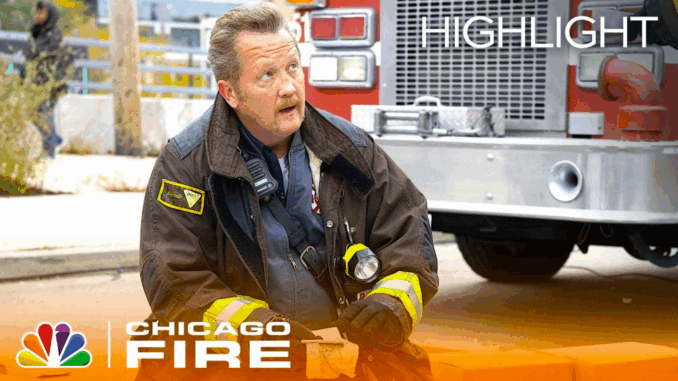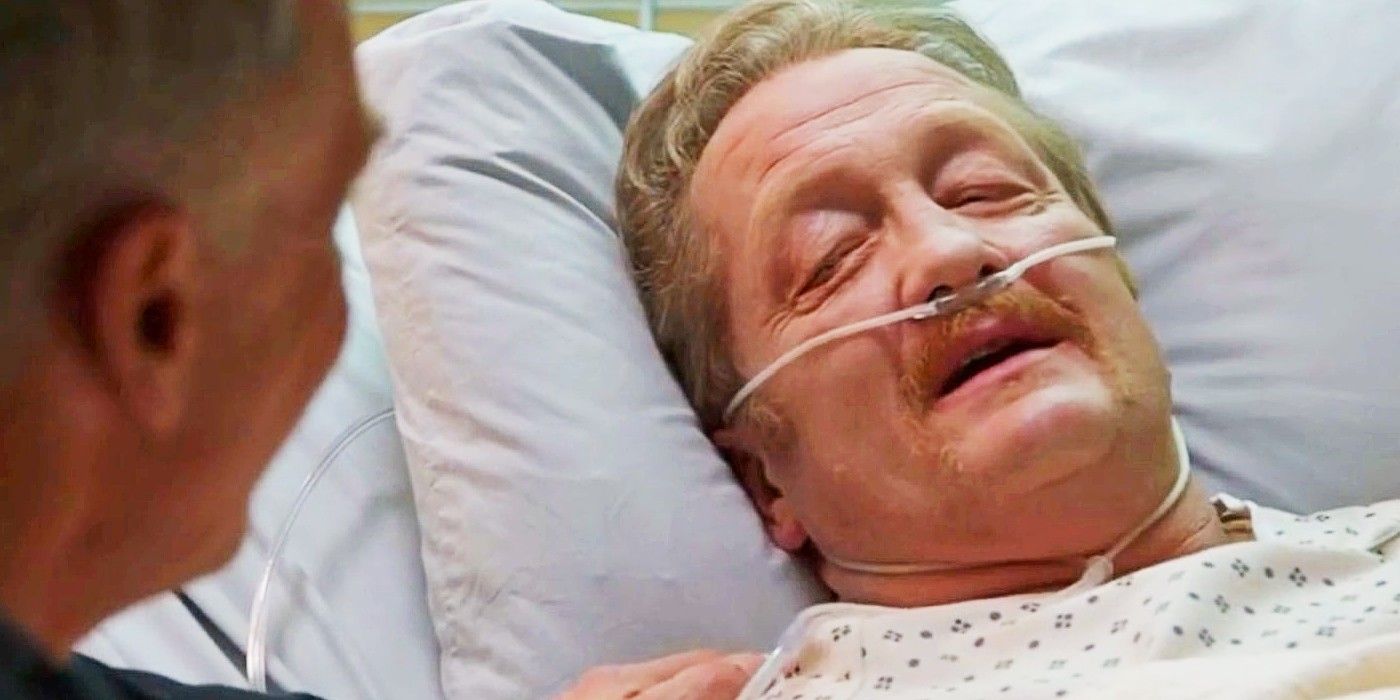
When Season 11 of Chicago Fire ended, it didn’t do so with a quiet fade-out. It exploded with emotion, uncertainty, and a gut-wrenching cliffhanger that left fans fearing the worst. One of Firehouse 51’s most beloved veterans, Randall “Mouch” McHolland, lay bleeding out in a hospital bed after being shot in the line of duty. His fate was left unknown. And for a moment, the entire One Chicago universe held its breath.
The Heart of the Firehouse
Played by Christian Stolte, Mouch isn’t the loudest, fastest, or flashiest firefighter on the team. But he’s one of the most deeply loved. A steady presence from Season 1, Mouch has always been the grounding force at 51 — someone who knows when to crack a joke and when to offer a shoulder.
He’s the guy who brings the team together for movie nights, who keeps his locker filled with obscure trivia, and who never turns away a friend in crisis. He’s been a comic relief, a mentor, and a quiet emotional anchor all at once. So when bullets started flying in Season 11’s finale, it wasn’t just another injury. It was personal.
Season 12: Picking Up the Pieces
The Season 12 premiere didn’t take long to reveal what happened. Mouch survived — but only barely. The show opened with him recovering in the ICU, surrounded by his worried family at Firehouse 51. It was a sobering moment. The man who’d always seemed untouchable was suddenly vulnerable, pale, and silent.
But Chicago Fire didn’t lean on melodrama. Instead, it honored the reality of trauma — the slow, painful recovery, the doubt that creeps into even the strongest minds, and the deep emotional scars that linger long after the wounds have closed.
Facing Mortality in a Job That Demands Courage
One of the most powerful arcs in Season 12 involved Mouch coming to terms with his own mortality. For years, he’d been the guy who made dying look easy to joke about. But post-injury, we saw a new Mouch — hesitant, frustrated, and unsure of his place.
Could he still climb into a rig with confidence? Would his body ever fully recover? More importantly: Had his time come and gone?
This storyline resonated deeply, especially for longtime viewers who’ve watched Mouch age alongside the show. His vulnerability became a mirror — not just for fellow firefighters, but for anyone facing the cruel question: What happens when the thing you love might no longer love you back?
Trudy’s Role: Love, Loyalty, and the Fear of Loss

If there was one person who could match Mouch’s blend of strength and snark, it’s his wife, Trudy Platt (played by Chicago P.D.’s Amy Morton). Her brief but emotional appearance during Mouch’s hospital stay was one of the most talked-about crossover moments of the season.
Platt — usually the tough, deadpan desk sergeant — was visibly shaken. Her pain was quiet but deep. It reminded fans that underneath the sarcasm and steel, the One Chicago characters are deeply intertwined — not just through work, but through love, history, and shared battles.
Their marriage, often played for laughs, became the emotional core of the episode. In her few words and lingering looks, Trudy told a story of fear that no badge could protect against.
Is Retirement on the Table?
Fans began speculating immediately: is Mouch about to hang up his helmet?
Season 12 delicately explored that possibility. Chief Boden, ever the father figure, offered Mouch the space to heal — without pressure, without judgment. The firehouse family visited, supported, and rallied behind him. And slowly, Mouch began to ask himself the tough question: could he still fight fires, or was it time to mentor the next generation instead?
While the show hasn’t confirmed anything yet, there’s a growing sense that Chicago Fire is preparing us for a transition. Maybe not today, maybe not tomorrow — but someday soon.
And if that day comes, it won’t be a sad ending. It will be a salute.
Why It Mattered
In a show known for big rescues and fiery drama, Mouch’s story stood out because it was quiet. It was human. And it reminded us that behind every helmet is a beating heart.
Sometimes the bravest thing a firefighter can do isn’t rushing into a burning building — it’s admitting they’re scared, allowing themselves to heal, and choosing to keep showing up anyway.